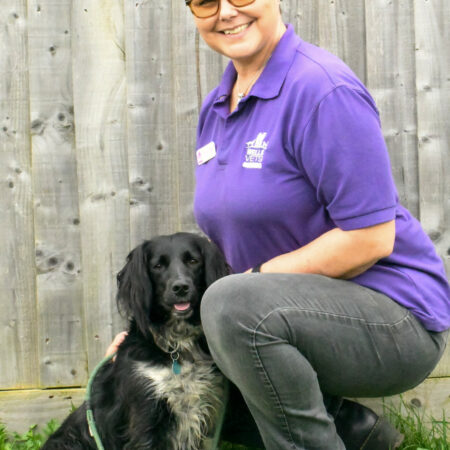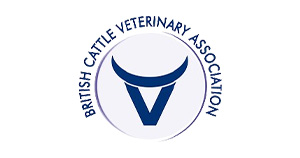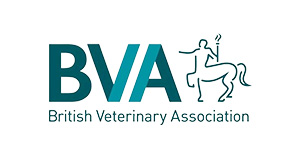Cashew the Courageous Ferret
First published on: July, 2023
Some of my favourite patients are ferrets. Contrary to popular opinion, ferrets make great pets. If well brought up in a home environment, they are friendly, inquisitive, easy to keep and great fun. They also love to sleep, so they are ready to play when you are, and happy to doze all the time you’re busy.
They would be perfect if it weren’t for their rather distinctive, ferrety smell, which is an acquired taste. The smell is less intense if they are fed a proprietary ferret food, rather than the cat food owners often used to feed them. Neutering also helps reduce the pong. In fact, non-breeding female ferrets, or Jills, shouldn’t be allowed to continue having seasons as their naturally high oestrogen levels can cause them severe and even fatal illness. These days, we prefer not to surgically neuter ferrets (castration for males, or Hobs, and spaying for Jills), as this has been proven to cause adrenal disease later in their lives. Instead, we can either give Jills regular injections to stop each season as it starts, or we can use a brilliant hormone implant which effectively neuters both males and females without any unpleasant side effects.
For working ferrets, we can still vasectomise Hobs. A vasectomised hob can then be left with the Jills to stop their seasons without the risk of a ferret population explosion. I won’t go into details here for reasons of decency, but I’m sure you get the idea. And this isn’t usually the answer for pet ferrets that live in people’s homes, because the smell remains pungent.
Ferrets have been popular house pets in the USA for longer than in the UK. Over there, many owners shampoo their ferrets at least once a week and wash their fabric bedding daily to reduce the aroma. The owners I have met are much more realistic, and love their pets even if they are a bit whiffy, accepting that it’s just part and parcel of being a ferret.
One delightful ferret I have been treating recently is Cashew, so named because, being a creamy colour, as a kit he looked like a cashew nut. He lives with his sister, Lily, who usually accompanies him on his visits to the surgery, and has us in stitches with her cheekiness and acrobatics.
Cashew developed some swellings in his neck last September. At the same time these appeared, he had a little cough and a sneeze, too. Ferrets can be prone to infections and swellings in the lymph nodes (what we would call “glands”) around the throat, so we started him on a course of antibiotic tablets.
Unfortunately, the lymph nodes did not reduce with antibiotics, and rapidly grew to almost walnut sized. When you only weigh around a kilogramme overall, that’s big lumps to carry around with you. Although the swellings didn’t appear painful, Cashew wasn’t eating as much as usual, and was a bit quiet. He also lost some of the hair on his tail, which is a really common sign of ill-thrift in ferrets.
I needed to know exactly what was causing the swellings, so we gave Cashew a general anaesthetic and took a small biopsy of one of the lumps. The pathologist who examined the biopsy confirmed that, unfortunately, Cashew had a type of cancer called Lymphoma.
Now, lymphoma isn’t an unusual disease of ferrets, so we could offer his owners a couple of treatment options. Full chemotherapy has been used in ferrets, with reasonable results in many cases. On the downside, it does require frequent visits to the vet, intravenous injections and tablets of some pretty unpleasant drugs, repeated blood tests to monitor progress, and, realistically, comes with a hefty price tag.
Cashew’s owners decided to take the other option, which is to give steroids. This is a really viable option in ferrets, as they are usually pretty good at taking tablets, and just giving steroids can slow the progression of their lymphoma right down, giving them a good quality of life for many months. Lymphoma is more common in older ferrets, and their lifespan is usually only around 7 years anyway, so a few months is really significant.
I am glad to say that I last saw Cashew for a check up at the beginning of March, and he is still doing well. He is a little bit crafty with his tablets, so his owners have to crush them and hide them in sticky, tasty food treats each day. He is still playful, and his tail hair has grown back. His owners say he sleeps more than he used to, but given that he is nearly 6 years old, I think that’s pretty reasonable, with or without his lymphoma diagnosis. He still has swellings in his neck, but he seems oblivious to them and eats well. It was lovely to see him and his sister again, and I hope he continues to play with her for months to come.
Well done, Cashew!

Author –
Polly Cornwell
Discover the inspiring story of Cashew, a ferret who bravely battled lymphoma. Learn about the challenges, treatments, and the importance of early diagnosis in ensuring a positive outcome for this beloved pet.
ferret health, ferret care, ferret diseases, lymphoma in ferrets, veterinary care, animal health, pet health, ferret behavior, ferret nutrition, ferret grooming
More Articles from Polly
More Articles
Caring for your pet as we do our own

At Shepton and Wells Vets, we understand what your pets mean to you, and so our Pets team aim to care for each and every one of them as we would do our own.
We care about your pet
Our primary focus is keeping them fit, happy and healthy with comprehensive and effective preventative healthcare, advice and treatment.
We care about you
We aim to communicate clearly and honestly with you, and discuss different treatment options so that you can make the right informed choices for you and your pet.
We care about clinical excellence
We take pride in providing a high level of medical and surgical care, working together as a team to do the very best we can for your pet.











